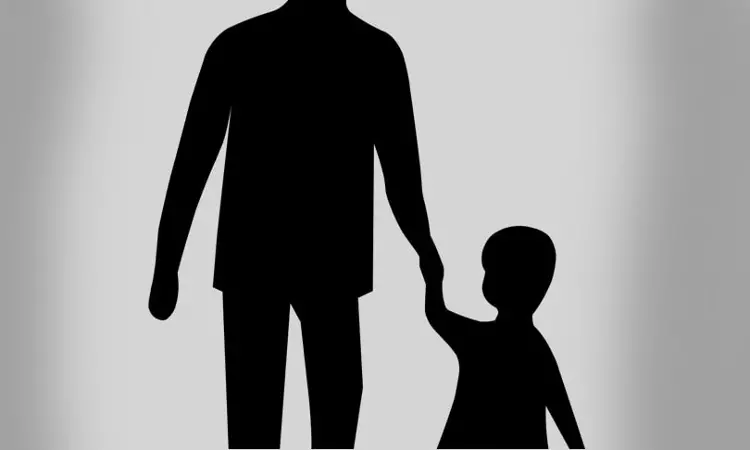- Home
- /
- High Courts
- /
- Kerala High Court
- /
- KeLSA's Victim Rights Centre...
KeLSA's Victim Rights Centre Submits Comprehensive Suggestions To Kerala High Court For Strengthening Adoption, Foster Care Systems
K. Salma Jennath
8 Oct 2025 3:22 PM IST
The Victim Rights Centre (VRC) of the Kerala State Legal Services Authority (KeLSA) has submitted comprehensive suggestions before the Kerala High Court for the betterment of adoption and foster care system.The report was submitted by Adv. Parvathi Menon A., Project Co-ordinator of VRC after she was suo motu impleaded by Justice Sobha Annamma Eapen in a writ petition filed by an adoptive...
The Victim Rights Centre (VRC) of the Kerala State Legal Services Authority (KeLSA) has submitted comprehensive suggestions before the Kerala High Court for the betterment of adoption and foster care system.
The report was submitted by Adv. Parvathi Menon A., Project Co-ordinator of VRC after she was suo motu impleaded by Justice Sobha Annamma Eapen in a writ petition filed by an adoptive mother, who had sought for a direction to the Child Welfare Committee to consider and pass orders on her application to surrender the adopted child.
In the report, there were suggestions to make the adoption and foster care system to focus not only on placing children in families but also “on sustaining such placements to ensure stability, security and holistic development” as the same should be seen as long-term commitments.
One of the suggestions was that prospective parents ought to undergo mandatory training and counselling on behavioural and psychological issues, trauma-informed care, gender sensitivity and adolescent development. Moreover, the actual final adoption orders should be done only after a trial foster placement with supervision, it was suggested.
Regarding pre-adoption process, there were suggestions for a psychological assessment of and counselling for prospective adoptive parents to ensure that they are well prepared, emotionally and mentally, for the challenges of parenthood.
With respect to post-adoption care, the VRC opined that there should be systems in place, including dedicated counselling centres, helplines, family therapy, peer support groups and free access to child mental health professionals.
After the child is placed, there should be periodic home visits, confidential child feedback mechanisms and conflict resolution panels to ensure that issues, if any, get resolved at the outset. However, it also took into consideration the fact that in certain circumstances, especially when the child is older, extended follow-up might be emotionally harmful as the child may come to know about the adoption. Therefore, it was suggested that the systems should be stringent and well-structured.
Additionally, it suggested a multidisciplinary Annulment Review Board with a CARA/SARA personnel on board to review every proposed return to foster care/institutionalisation and this must be after hearing the child and after exhausting alternatives like mediation, counselling, etc. for resolving any issues.
“Legal Services Institutions across the country can provide child legal assistance by adopting model such as Child Legal Assistance Program (CLAP) functioning under the aegis of the Kerala State Legal Services Authority” was another important suggestion. This along with additional assistance of a child support lawyer and a psychologist from the Department of Women and Child Department of each State would ensure the best interests of the child, it is stated.
"Children cannot be treated as mere chattels, with little regard for their emotional security. When adopted, they grow accustomed to families that provide both emotional care and reasonable financial stability. Children experience profound emotional and financial upheaval when deprived abruptly of these comforts...In cases where annulment is the sole remedy, the adoptive parents should be required to ensure the child's financial security as an integral part of the annulment process," the report has highlighted the need to provide proper financial and social support to children, even in circumstances where adoption is to be annulled.
The report also considered a situation where the children get reunited with biological parents after a temporary placement under foster care or with fit persons. In such cases, “the process must be gradual and child-centric, involving phased visitation schedules, joint counselling of the child and biological parents, therapeutic preparation to address fears or attachments, and consistent involvement of social workers to monitor the transition; the fit person or foster carer should be engaged in the handover to provide continuity and reassurance, and post-reunification follow-up must ensure that the biological family is able to provide safe, stable, and nurturing care,” it was suggested.
Further, it briefly addressed the fact that the legislative framework does not incorporate the concept of emancipation, and suggested that adoption cannot be annulled upon children attaining majority.
The report was concluded with a prayer for a direction to the union and state governments to consider the suggestions made in the report through amendment of laws and regulations.
When the matter came up, the Court asked the DSGI (Deputy Solicitor General of India) to get instructions from the union government on the suggestions made. The case will be heard again on October 22 (Wednesday).
Case No: W.P. (C) No. 6428/25
Case Title: XXX v. Union of India and Ors.



